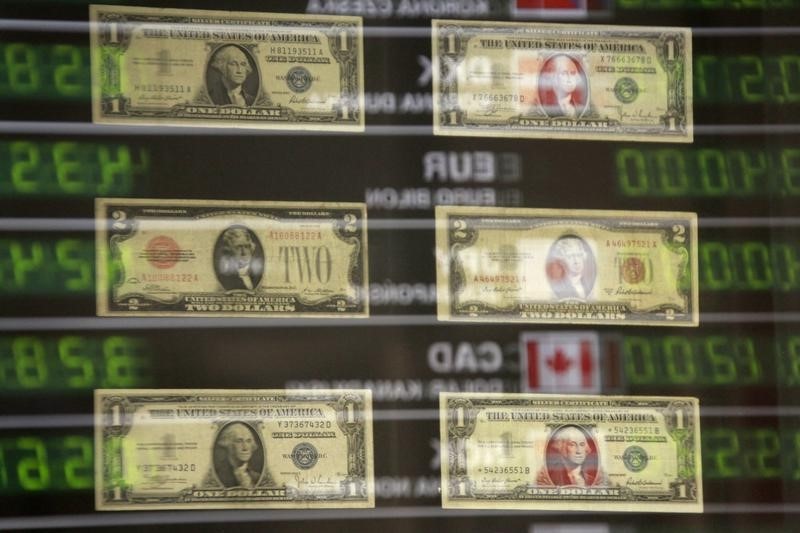* Canadian dollar at C$1.3077 or 76.47 U.S. cents
* Bond prices higher across the maturity curve
By Solarina Ho
TORONTO, July 24 (Reuters) - The Canadian dollar crashed
through 2009 lows against the U.S. dollar on Friday to trade at
levels not seen since 2004, pushed down by a stronger greenback
and broad concerns that slow global economic growth will hurt
commodities-driven currencies.
The move came as the price of oil, a major Canadian export,
stabilized but remained below $49 a barrel. Weaker-than-expected
economic data from China, the world's biggest metals consumer,
sent currencies linked to global commodity prices, such as the
Canadian and Australian dollars, to multi-year lows. FRX/
"It's a little bit of the momentum buying of USD/CAD,
selling of (the Canadian dollar) ... It's a little bit tricky,
you're sort of in some of these open areas now," said David
Tulk, chief Canada macro strategist at TD Securities.
"The longer-term background trend supports USD/CAD higher:
The more you read about China overnight and the weakness in
commodity markets more generally, that's been the narrative."
At 9:47 a.m. EDT (1347 GMT), the Canadian dollar CAD=D4
was at C$1.3077 to the greenback, or 76.47 U.S. cents, weaker
than the Bank of Canada's official close of C$1.3039, or 76.69
U.S. cents, on Thursday.
The loonie cracked through the March 2009 low of C$1.3066
early in the North American session, retreating as far as
C$1.3103, or 76.32 U.S. cents, a level not seen since Sept. 1,
2004.
Despite the significant retreat, the Canadian dollar was not
the weakest performer against the greenback among major
commodities currencies and strengthened against other
commodities currencies.
Most strategists have been pointing to the C$1.32 to C$1.33
area, or around 75 U.S. cents, as the next key levels, with
C$1.39 to C$1.40 marked as potential long-term possibilities.
The Canadian dollar was at just above C$1.40 in May 2004.
The next major economic event was seen as the U.S. Federal
Reserve's rate decision due on Wednesday.
Canadian government bond prices were higher across the
maturity curve, with the two-year CA2YT=RR price up 1 Canadian
cent to yield 0.42 percent and the benchmark 10-year CA10YT=RR
rising 19 Canadian cents to yield 1.481 percent.
The Canada-U.S. two-year bond spread widened to -28.3 basis
points, while the 10-year spread widened to 79.0 basis points.
